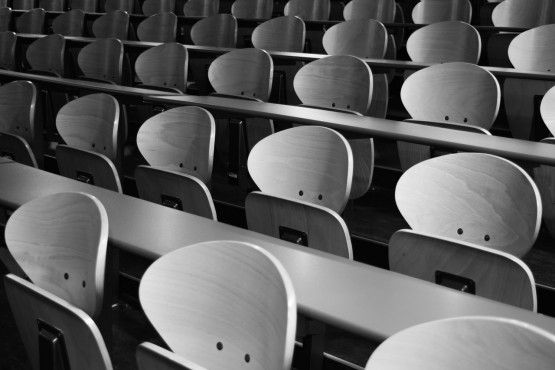Standing against injustice starts in the classroom
Last Monday, Jan. 30, I sat down for my morning lecture with an expectation: a discussion about Islamophobia. I’m an undergraduate member of the Humanities, and I’m used to topics of injustice surfacing in the classroom.
I’m referencing Islamophobia hidden under the guise of the seven-nation travel ban and refugee suspension signed by Donald Trump on Friday, Jan. 27, which bans citizens of seven Muslim-majority countries from travelling to and from the United States.
How did UVic respond?
That day, President Jamie Cassels reminded students of counselling support offered on campus, and even stated, “Universities play an extraordinarily important role in encouraging dialogue on critical social issues, particularly during times of change and conflict.”
Perfect, so why wasn’t this discussion alive in our classrooms? If we at UVic have the privilege of education, doesn’t that come with the obligation to speak out against injustices?
It made me ask myself, “what are we doing here, really?” Because as of last week, we’re now dealing with a violation of human rights. Canada’s polite passivity is no longer an acceptable response. UVic can be an example if we come together and openly discuss issues of discrimination.
But this discussion needs to start within our classrooms. Faculty should lead by example, open the forum, even if it takes time away from a planned lecture, even if it is aside from course objectives.
Trump’s travel ban has placed the word ‘terrorist’ onto every Muslim person in the world. It has detained innocents, banned refugees, and promoted prejudice. It is an action that we cannot let slip past us as we prioritise course outlines, because to ignore these topics is to perpetuate systemic injustice.
Trump has denied that the order is a “Muslim ban,” and has thrown around the ‘terrorist’ label to create fear that attempts to validate racism, but we, university faculty and students, cannot allow hateful rhetoric to go unchallenged.
CNN stated, “You’re actually more likely to die being struck by lighting, being hit by a bus, falling out of bed, than you are of dying from a terror attack.” According to the Cato Institute, “the chance of an American being murdered in a terrorist attack caused by a refugee is one in 3.64 billion per year . . . an attack committed by an illegal immigrant is an astronomical one in 10.9 billion per year.” [Author’s emphasis.]
I question how banning people from Syria, Iraq, Iran, Yemen, Libya, Somalia, and Sudan (the seven Muslim-majority nations outlined in Trump’s executive order), how banning refugees from sanctuary, is not an act of terror? Why are the privileged capable of terrorizing people of colour in the time it takes to write their signature? These are questions that go unanswered.
If we can’t even scratch the surface of racial issues in the classroom, how can we in all of Canada? We cannot keep letting it skirt by with our heads down, and claim solidarity while remaining unsure as to how to act on it.
It is our duty as a university to stand in clear opposition to Trump’s travel ban, to Islamophobia, and to racism in general. There is nothing more important than discussing ways in which we can lend support to those who have been marginalized, and demonstrating our resistance to racialized violence. It’s time to speak up.







